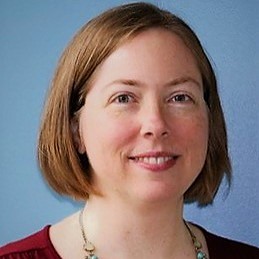Kim Martin, ASTHO’s Director of Immunization, tells us how an event like National Influenza Vaccination Week impacts vaccination awareness; ASTHO CEO Mike Fraser says communities weary of COVID-19 cannot afford to let their guard down; and Dr....
Kim Martin, ASTHO’s Director of Immunization, tells us how an event like National Influenza Vaccination Week impacts vaccination awareness; ASTHO CEO Mike Fraser says communities weary of COVID-19 cannot afford to let their guard down; and Dr. Nicole Alexander Scott, Director of the Rhode Island Department of Health, explains the value of health equity zones.
ASTHO Blog Article: Flu Activity Rising – It’s Time to Get the Vaccine!
CDC webpage: National Influenza Vaccination Week
ASTHO webpage: Public Health Review podcast
ROBERT JOHNSON:
This is Public Health Review Morning Edition for Friday, December 10th, 2021. I'm Robert Johnson.
Now, today's news from the Association of State and Territorial Health Officials.
National Influenza Vaccination Week ends tomorrow. We wanted to know how an event like this helps people get vaccinated. Kim Martin, ASTHO's director of immunization, tells us in today's morning conversation.
How does an event like National Influenza Vaccination Week actually impact vaccinations?
KIM MARTIN:
Yeah, it's a really important reminder to the public that it's not too late to get their vaccine. And now that we're starting to see a slight increase in flu activity throughout the U.S., this is a really good time for public health agencies to promote flu vaccine and raise awareness that anyone six months of age or older can get a vaccine.
JOHNSON:
This recognition is aimed at the public, but what do you hope public health agencies will take from it?
MARTIN:
Obviously, public health agencies are very well positioned to promote this event and raise awareness of the importance of flu vaccine in their own state or in their own community; and this year in particular, public health agencies can promote co-administration of flu and COVID vaccine—meaning that people do not have to choose between getting a COVID or a flu shot. They can get both at the same time and save a trip to their provider.
JOHNSON:
We're starting to hear a little bit more about flu right now—it's getting to be that time of the year.
Are there any early reports about flu vaccine uptake?
MARTIN:
So, the data suggests that there is a little bit less uptake of the flu vaccine this year compared to previous years, especially among some vulnerable populations such as children and those who are pregnant.
So, again, this week is a great reminder—it's not too late, go out and get your flu vaccine.
JOHNSON:
Why do we think uptake is lagging this year?
MARTIN:
I'm not sure if there's any one reason for the lower vaccine rates this year—it could be multiple reasons. It could be that there is a lot of attention to COVID. It could be that last year there was a little bit less flu activity going on, so people are not as concerned about flu this year.
But it is important for people to be reminded that while you're out in the community and you are exposing yourself to flu and other illnesses, it's really important to stay protected and prevent yourself from getting the flu by getting the flu shot.
JOHNSON:
In just a few weeks, we'll celebrate the new year; but like last January, we'll do it with COVID-19 lurking.
ASTHO CEO Mike Fraser knows everyone is tired of the virus, but he says weary communities cannot afford to let their guard down.
MIKE FRASER:
I think what we're seeing is a lot people just ignoring it and trying to make it go away by thinking it doesn't exist; and that's unfortunate because we're not going to get on top of it if that happens.
I think we need people to be vigilant, and to practice all those things we know work in preventing COVID transmission, and remember that it's with us, and that it's serious—it's serious, especially for older people; it's serious for people with pre-existing conditions.
And pretending that it's going to go away doesn't make it not real. And I think that's, you know, our challenge
JOHNSON:
Finally this morning, more ASTHO members are creating health equity zones as they work to give communities a leading role in developing and delivering solutions to their public health challenges.
Dr. Nicole Alexander-Scott is a big fan of the approach, launching Rhode Island's model soon after taking the job as health department director in 2015.
- NICOLE ALEXANDER-SCOTT:
The value of the health equity zones initiative is to elevate the community's voice, to drive towards sustained action, and just understanding the importance of that. And knowing that it's not an easy road, but it's a necessary road and it's worth it really helps shape when folks use language like "hard to reach" or "challenging." No, this is what it takes.
There have been years, decades, centuries of discriminatory or other systemic challenges that have been put into place. And so, we need the commitment of every public health leader, of everyone who's engaged, to use with determination, innovation, cooperation, and respect whatever model and tool we have to help reverse that.
JOHNSON:
Dr. Alexander-Scott was joined by her toddler during the interview. She explains the value of health equity zones with his help in a new episode of the Public Health Review podcast, coming soon everywhere you stream audio.
That'll do it for today's report.
Make sure to follow us on Apple Podcasts or Spotify. You can also listen on Alexa or Google assistant.
If you have time, we'd be grateful if you could leave us a rating and a review.
Be sure to join us again Monday morning for more ASTHO news and information.
I'm Robert Johnson. You're listening to Public Health Review Morning Edition. Have a great weekend.





